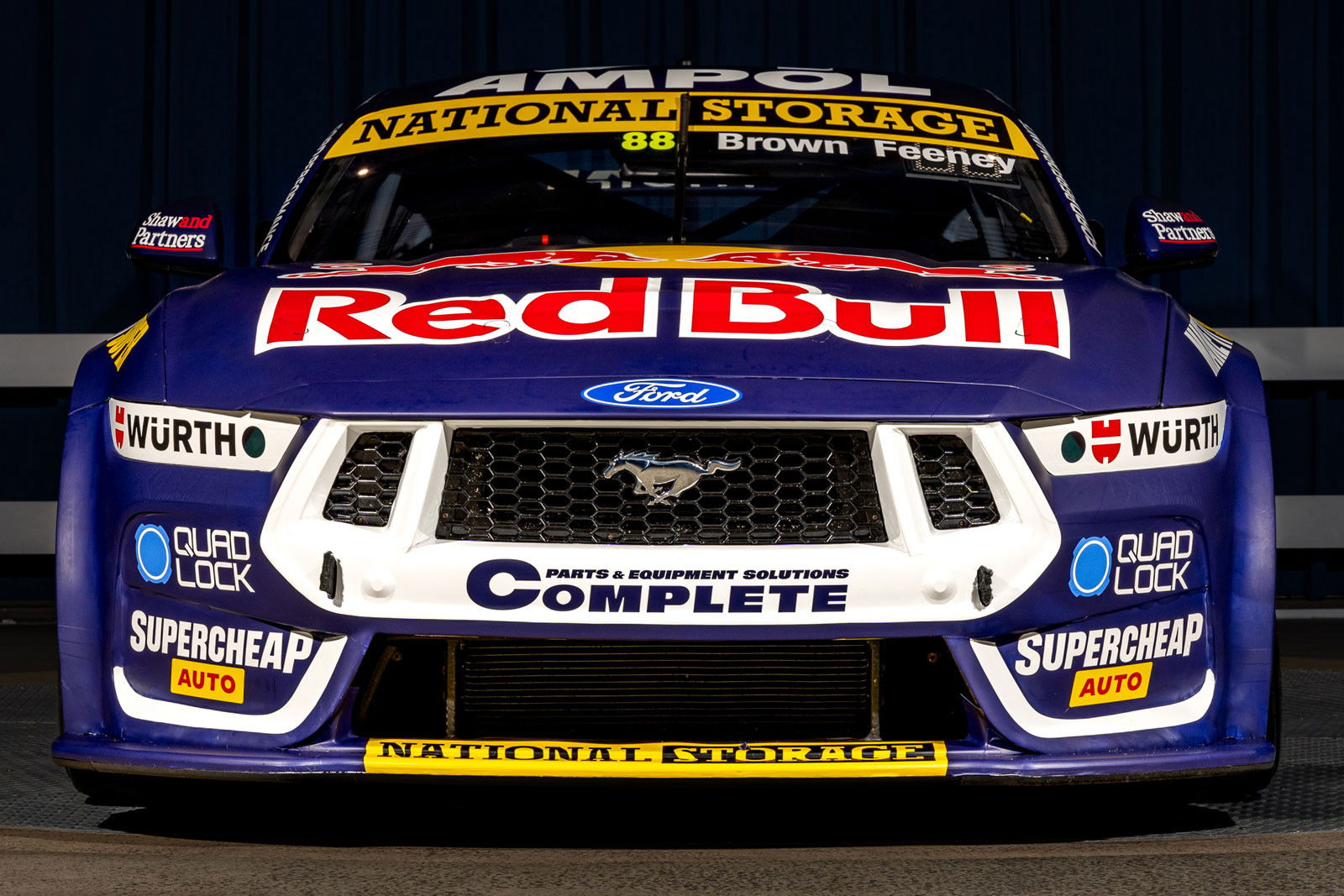

General Motors today confirmed an exclusive Supercars engine supply agreement with McNamara’s KRE Race Engines business, extending through 2026.
Triple Eight, which McNamara has been associated with since the team was founded in 2003, declared last month that KRE would take over the Ford engine supply as part of its move.
McNamara had made it clear to Ford and Triple Eight that he would not drop GM, leaving those parties to push for KRE to be able to supply both brands, or even 2026 newcomer Toyota as well.
An argument as to whether a single entity should be allowed to supply more than one marque has since raged, with GM, Toyota, Supercars and several team owners against the proposal.
Triple Eight and Ford remained confident that a deal could be struck until McNamara opted to end the saga by signing the GM agreement this week.
“It’s more to keep everyone at peace,” McNamara explained to Speedcafe.
“From what I’ve been reading and from meetings with people over the last few weeks, even some of the team owners, a lot of them weren’t happy with having it all under one roof.
“It definitely wouldn’t be easy [to supply both], there’s a lot of politics and I had a good think about it over the last couple of weeks.
“The biggest thing for me is the staff. We’ve got 12 people and a lot of them have been here 15-odd years. We’ve got something that works really well.
“I spoke to them about it, and everyone was worried about the extra workload and all the other stuff that comes with it. I’m going on 57 too, I’m not young and it’s a lot of work.”
Triple Eight’s defection to Ford put McNamara in a difficult position, given his long history with the squad and key members of its staff.
He worked with Mark Dutton and Jeromy Moore at Larkham Motorsport before all three moved to Briggs Motorsport, which was bought by Triple Eight in mid-2003.
McNamara spent time at Stone Brothers Engines during the period when Triple Eight first outsourced its program, before KRE took over the deal in 2009.
Boasting a long-established customer engine program, KRE assumed the supply contract for the entire GM side when that model was introduced under Gen3.
Resistance to having KRE supply both GM and Ford meant McNamara had to choose one loyalty over the other.
“I spoke to Jamie [Whincup] and Dutto and everyone knew it was not going to work as one,” said McNamara.
“They never came to me and said, ‘can you just do the Ford?’ It was ‘can you do both’. I always appreciated that.
“They were going to put something to me this week and I said, ‘mate, all that will do is make me feel more upset’, because I’m sure it’d be something good.
“But like I said to Jamie, I didn’t want to get stuck in a battle of who’s going to offer me this or that.
“For me and my heart, I started this [GM] project and I’d like to stay until the end.
“It’d just feel wrong to switch. That’s what I feel personally, it’s not a monetary thing, business-wise.
“I think it would be unfair on the other [Chev] teams too. We’ve got 38 engines out there, so where do they end up?
“It’s not simple on that side of it, so you look at the bigger picture.”
McNamara also noted that around 70 percent of KRE’s business is speedway engines, which are almost solely GM products.
“We’ve got a very good relationship with the guys at GM in Detroit as well and I’d like to keep that,” he said. “And honestly 90 percent of our speedway stuff is all GM.
“We use a lot of their crate motors and bits and pieces. If I was to change, you’re just not popular with everybody.”
While KRE’s decision ends the debate surrounding one supplier looking after multiple brands in Supercars for now, McNamara says the model could prove right in the future.
“Who knows, in two years’ time maybe it does end up under one roof. I think now is probably not the right time with the Toyota thing,” he said.
“We could do it cheaper (if KRE did GM and Ford) because it’s one rent, one load of electricity, etcetera, and it puts Toyota on a bit of an island.
“I think everything needs to settle into a rhythm, get through the parity process and the whole thing and if it does come down to cost in a few years’ time, maybe it can happen.
“But I think with the Triple Eight announcement, everyone has to settle into a rhythm again and see where it all ends up.”




















Discussion about this post